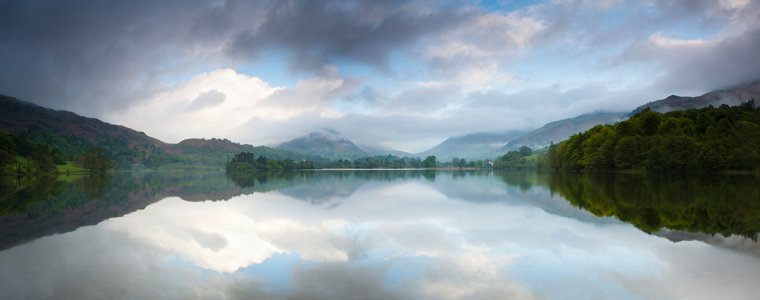
Photo: NationalParkTraveller
Wordsworth famously described the Lake District as “a sort of national property”
which he believed every person “had a right to enjoy”.
Sheer poetry, heavenly beauty, and the celebration of Mother Nature in the lakes:
Grasmere really is ‘the loveliest spot man hath ever found’
‘In 1799, after years of restless wandering and uncertainty, Wordsworth returned to his native Lake District to make a home with his sister Dorothy.
The Wordsworths chose a humble cottage in Town End, with whitewashed walls and Lakeland slate floors, in a hamlet on the edge of Grasmere village.
Wordsworth described his new home and the garden surrounding it as “the loveliest spot that man hath ever found”
We know it today as Dove Cottage, the place where poetry changed forever.’
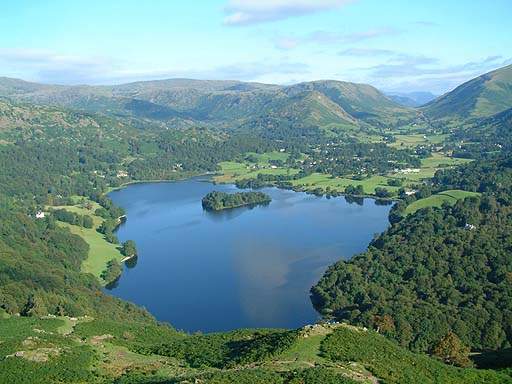
Grasmere and Grasmere Village from Loughrigg. Picture by Tony Richards.
"Embrace me then, ye Hills, and close me in;
Now in the clear and open day I feel
Your guardianship; I take it to my heart;
‘Tis like the solemn shelter of the night.
But I would call thee beautiful, for mild,
And soft, and gay, and beautiful thou art
Dear Valley, having in thy face a smile
Though peaceful, full of gladness. Thou art pleased,
Pleased with thy crags and woody steeps, thy Lake,
Its one green island and its winding shores;
The multitude of little rocky hills,
Thy Church and cottages of mountain stone
Clustered like stars some few, but single most,
And lurking dimly in their shy retreats,
Or glancing at each other cheerful looks
Like separated stars with clouds between."- William Wordsworth, Home at Grasmere
Those of you familiar with my writings know well of my love, respect and admiration for my spiritual teacher, William Wordsworth. Thus, no wonder how blissful and grateful I was when my wife, Annie and I, travelled to the Lake District, went to Grasmere and visited Dove Cottage.
Wordsworth was there with his sister Dorothy from 1799 to 1808 and penned the line "I wandered lonely as a cloud" after being inspired by flowers the pair had seen on the shores of Ullswater.
It was at Dove Cottage that he also wrote most of his best known verses, including his Ode: Intimations of Immortality, Ode to Duty, and My Heart Leaps Up, together with parts of his autobiographical epic The Prelude.
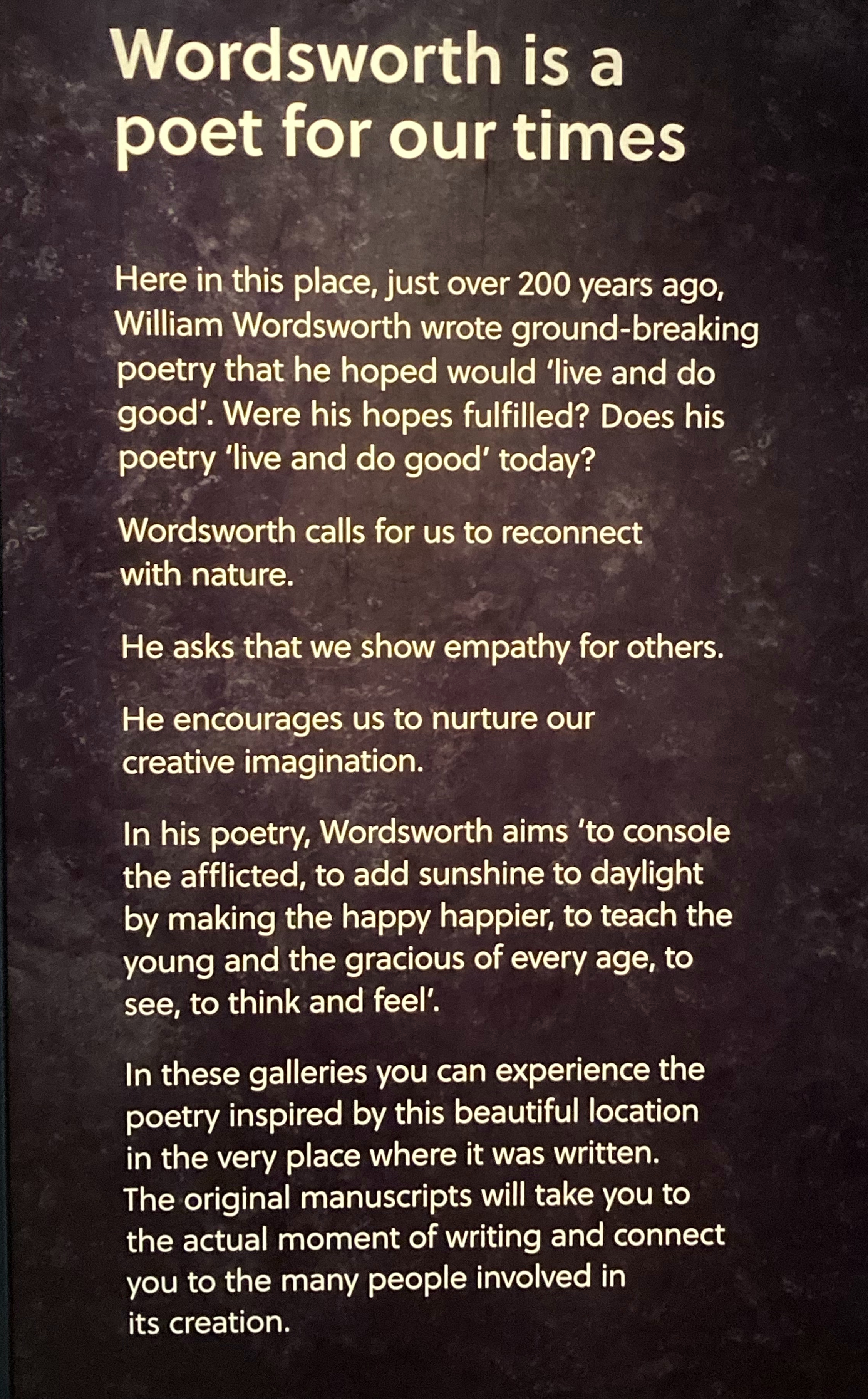 Photo: Kamran Mofid
Photo: Kamran Mofid
To prepare an article in celebration of Wordsworth's 250th birthday anniversary which was in 2020, we went to the lakes and Grasmere in November 2019. However, due to construction works and improvements to Dove Cottage the Cottage was closed to the public. Then, due to COVID-19 lockdowns, we were unable to visit the Lake District in 2020, so you can imagine how delighted and happy we were this time around in November 2021, when we made our long awaited pilgramge to Dove Cottage on November 11th.
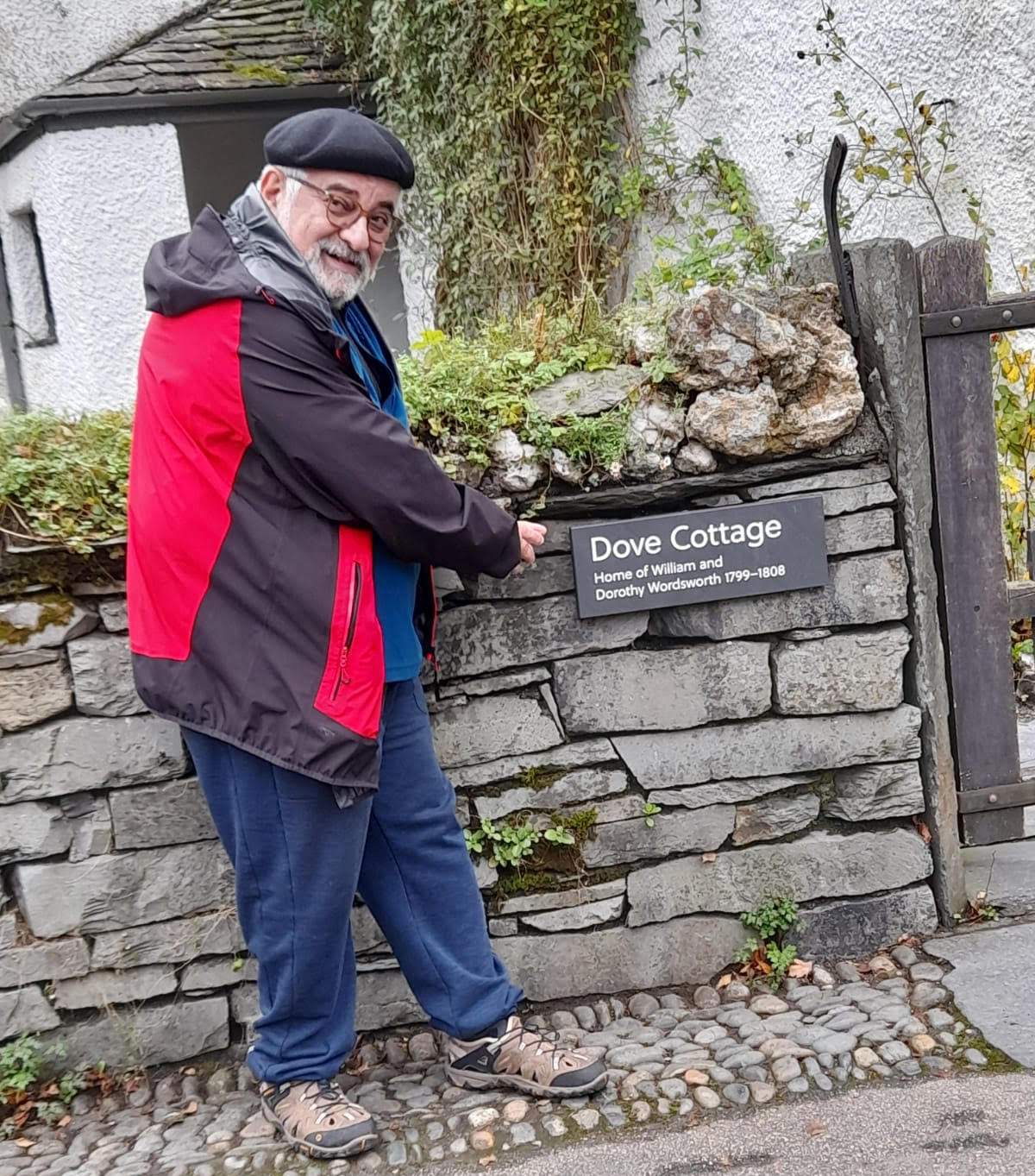
Photo: Anne Mofid
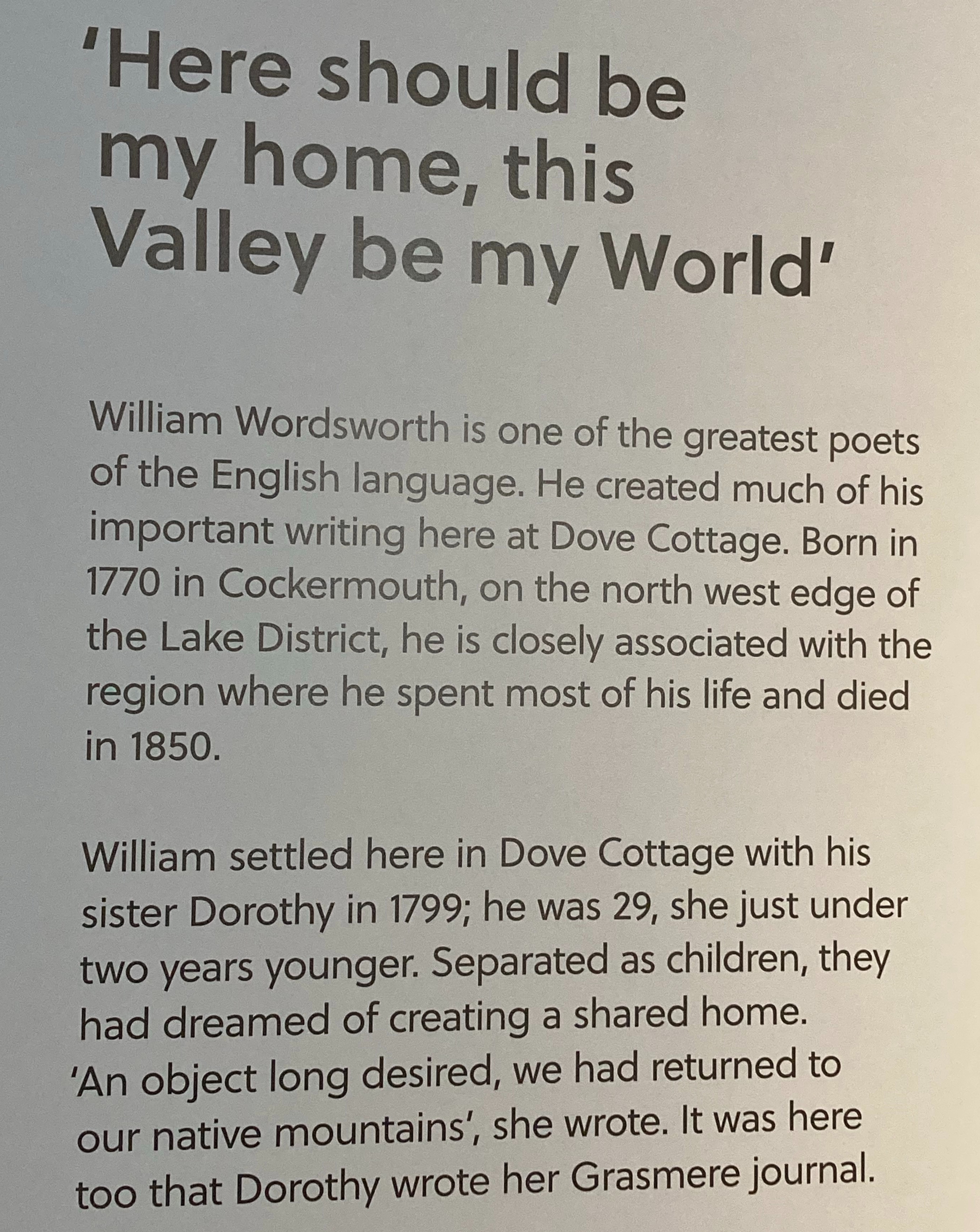
Photo: Kamran Mofid
‘As a poet of Nature, Wordsworth stands supreme. He is a worshipper of Nature, Nature’s devotee or high-priest. His love of Nature was probably truer, and more tender, than that of any other English poet, before or since. Nature comes to occupy in his poem a separate or independent status and is not treated in a casual or passing manner as by poets before him. Wordsworth had a full-fledged philosophy, a new and original view of Nature. Three points in his creed of Nature may be noted:
(a) He conceived of Nature as a living Personality. He believed that there is a divine spirit pervading all the objects of Nature. This belief in a divine spirit pervading all the objects of Nature may be termed as mystical Pantheism and is fully expressed in Tintern Abbey and in several passages in Book II of The Prelude.
(b) Wordsworth believed that the company of Nature gives joy to the human heart and he looked upon Nature as exercising a healing influence on sorrow-stricken hearts.
(c) Above all, Wordsworth emphasized the moral influence of Nature. He spiritualised Nature and regarded her as a great moral teacher, as the best mother, guardian and nurse of man, and as an elevating influence. He believed that between man and Nature there is mutual consciousness, spiritual communion or ‘mystic intercourse’. He initiates his readers into the secret of the soul’s communion with Nature. According to him, human beings who grow up in the lap of Nature are perfect in every respect…’- Continue to read
Thank you William Wordsworth for your teachings and inspiration
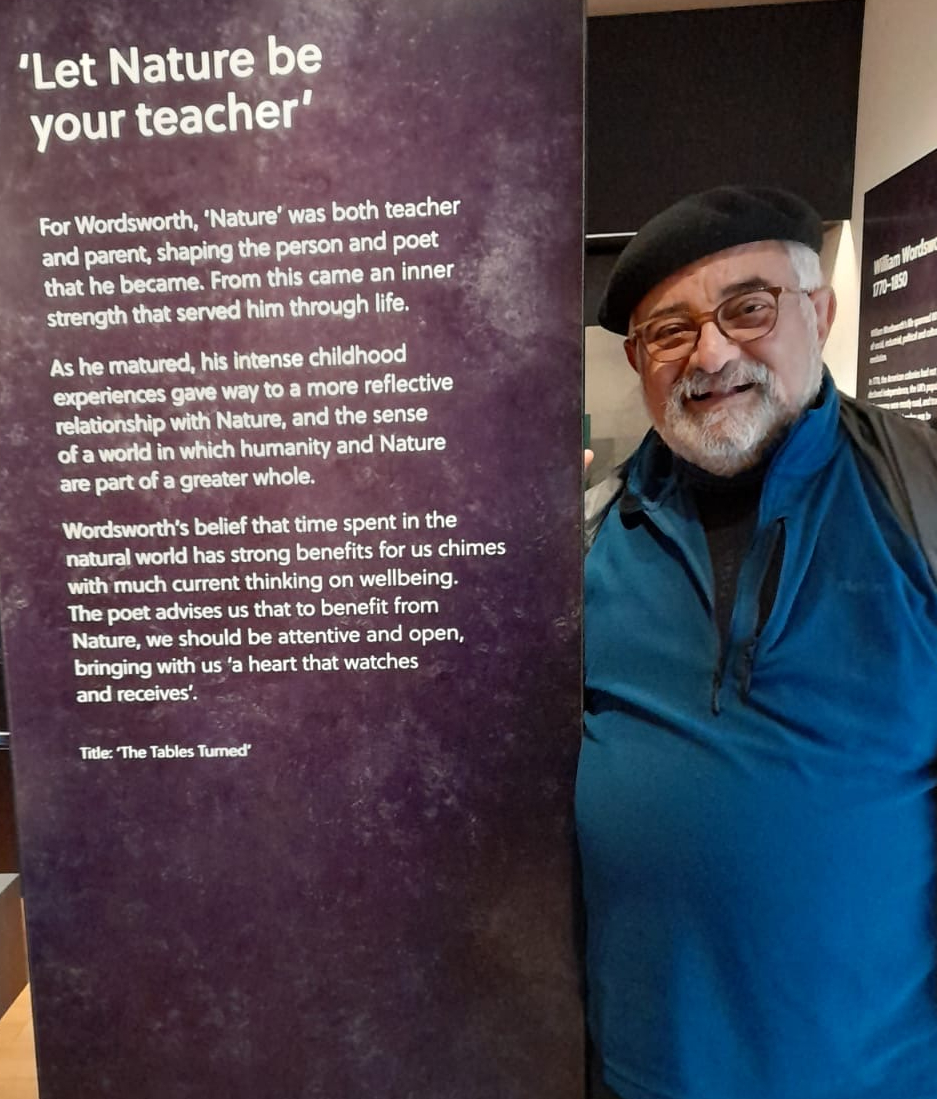
Photo: Anne Mofid

Photo: Kamran Mofid
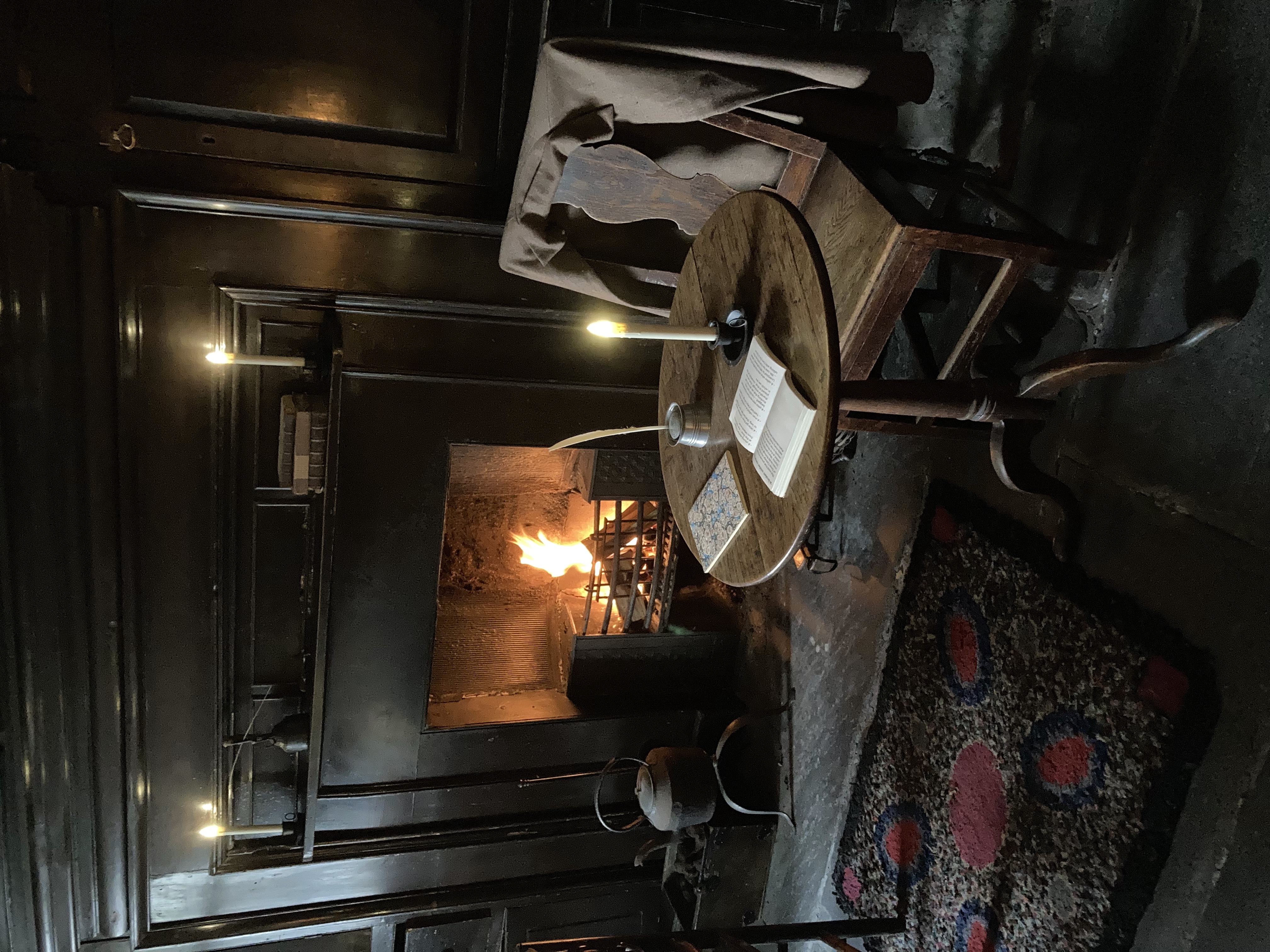
The sitting room, Dove Cottage. Photo: Kamran Mofid
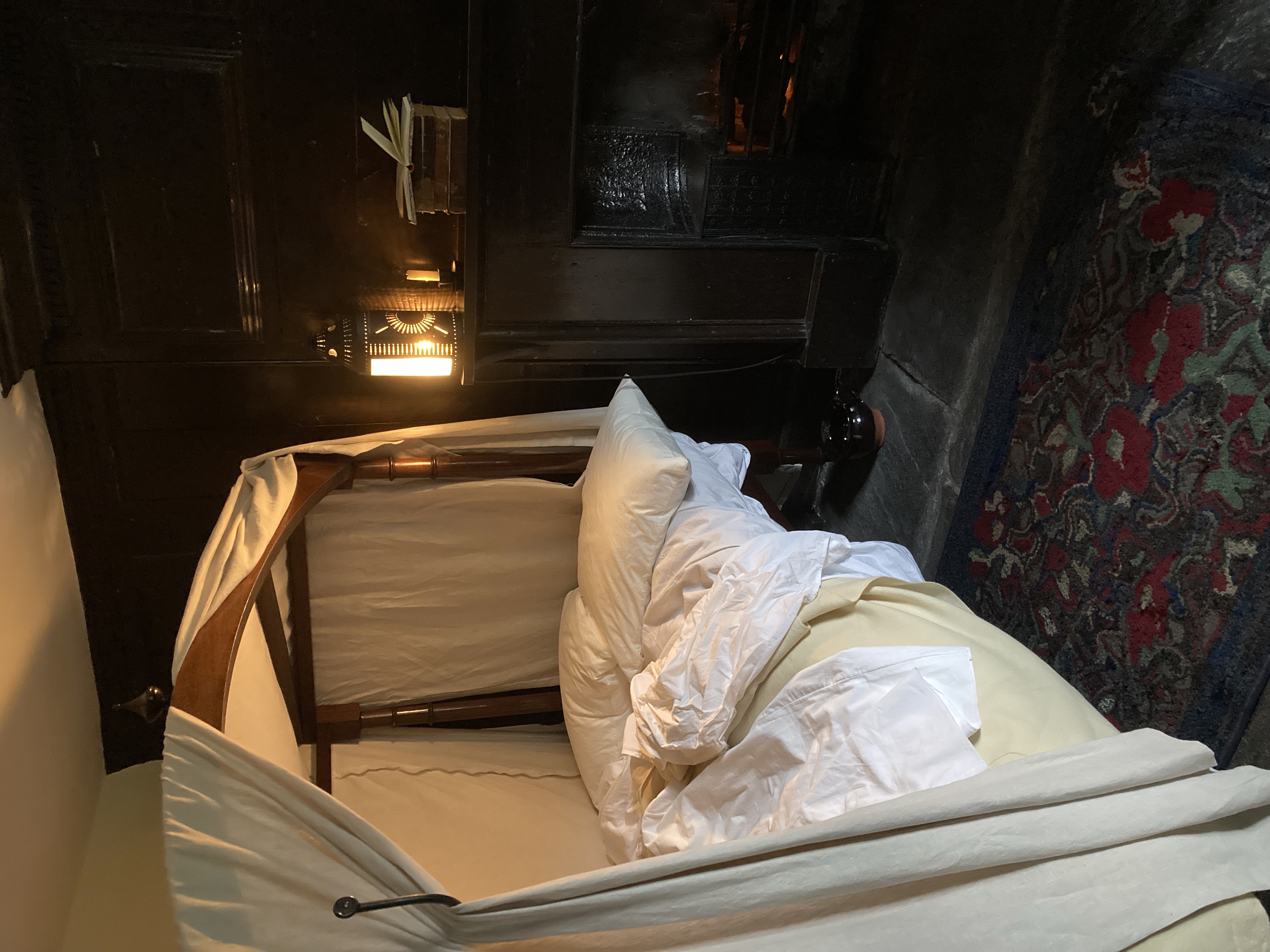
The Main bedroom, Dove Cottage. Photo: Kamran Mofid
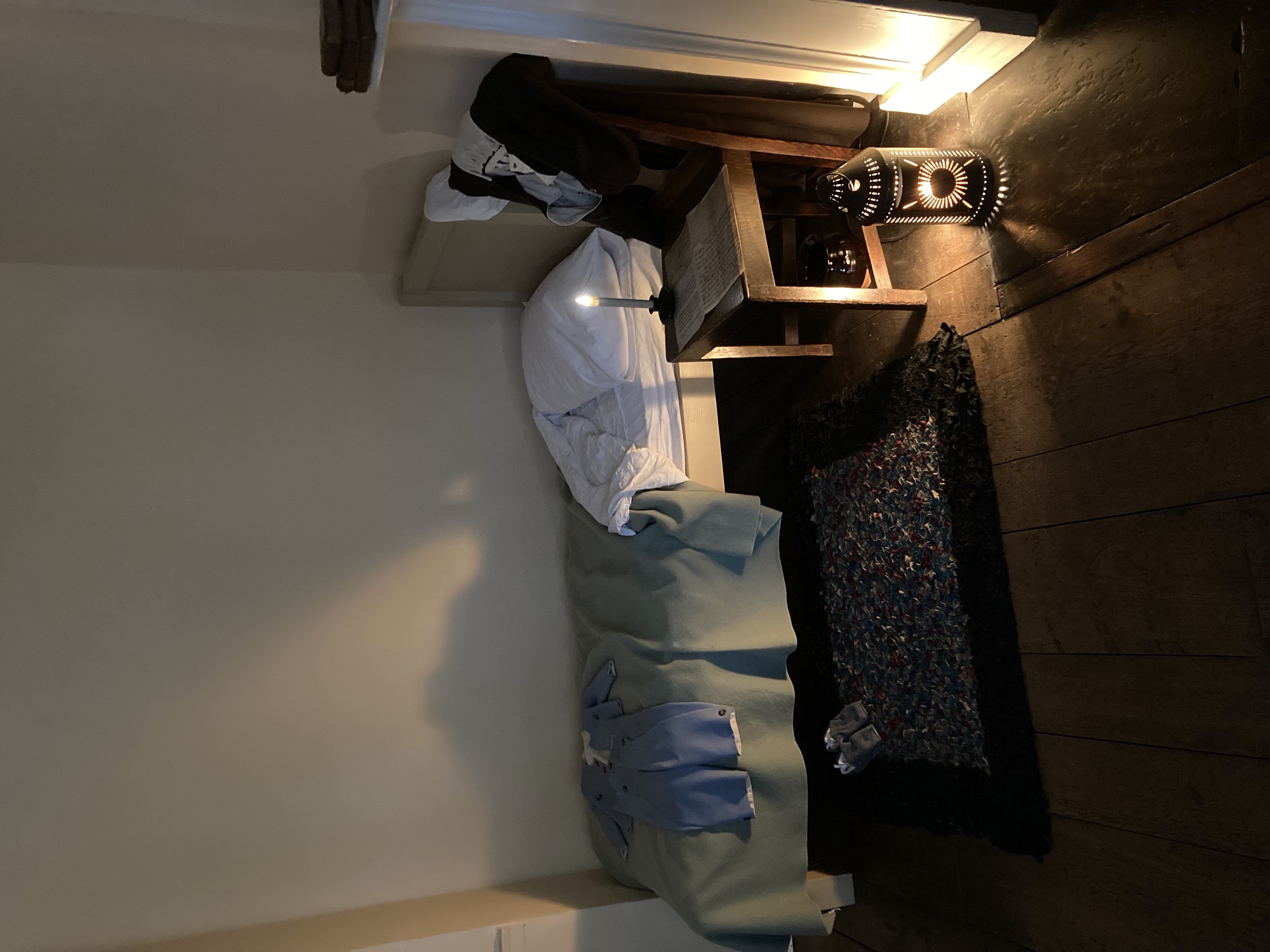
The 2nd bedroom, Dove Cottage. Photo: Kamran Mofid
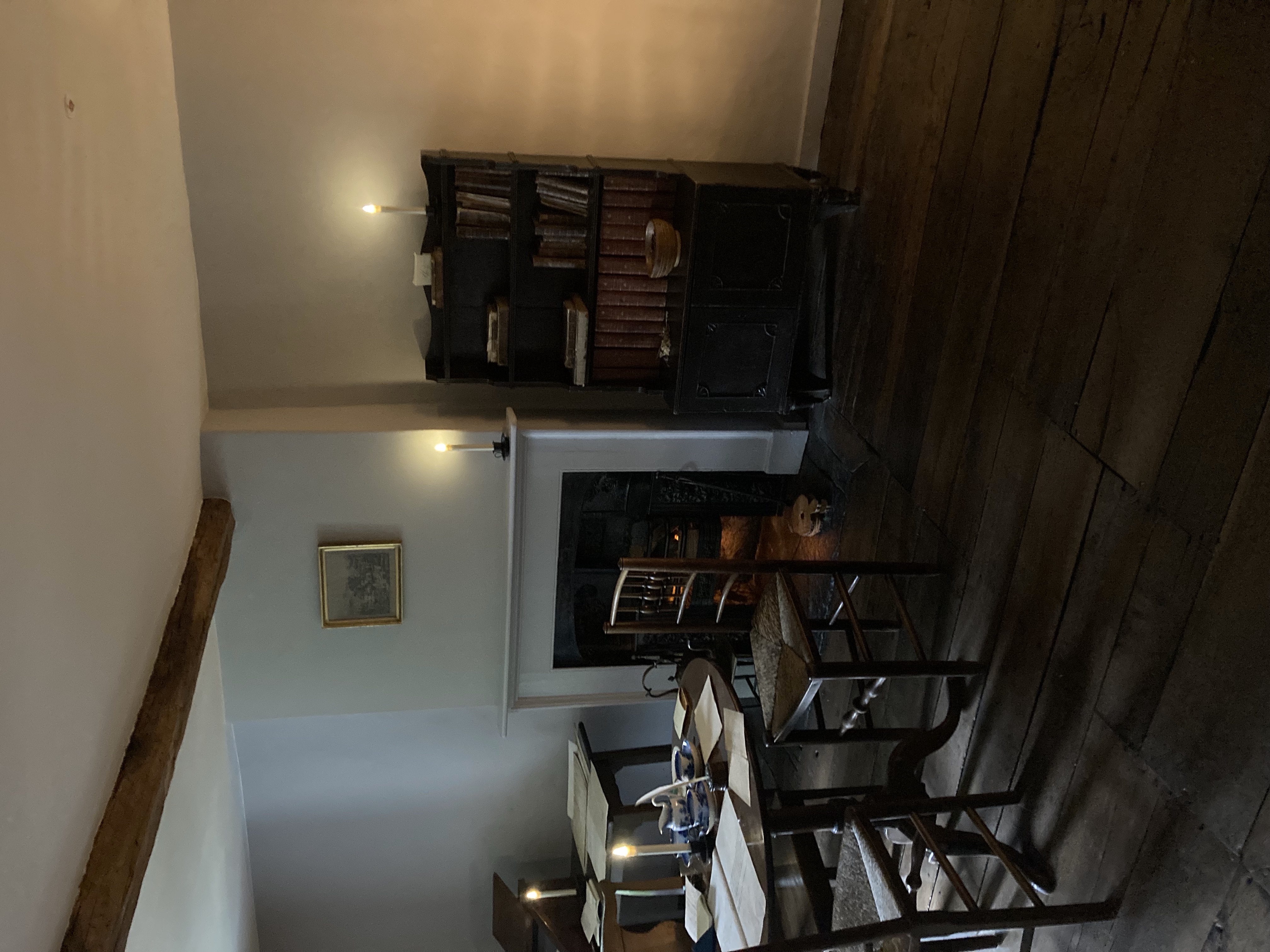
The lounge, Dove Cottage. Photo: Kamran Mofid
Learn more about William Wordswoth's life and Dove Cottage HERE
......
To honour wordsworth and show our appreciation we must honour, protect, nurture and nourish what he valued most, namely, Mother Nature.
Please see the two links below and join me in our collective campaign to save our Mother Nature and Earth:
Environmental Crisis, Hope and Resilience: A Pick from our GCGI Down to Earth Archive
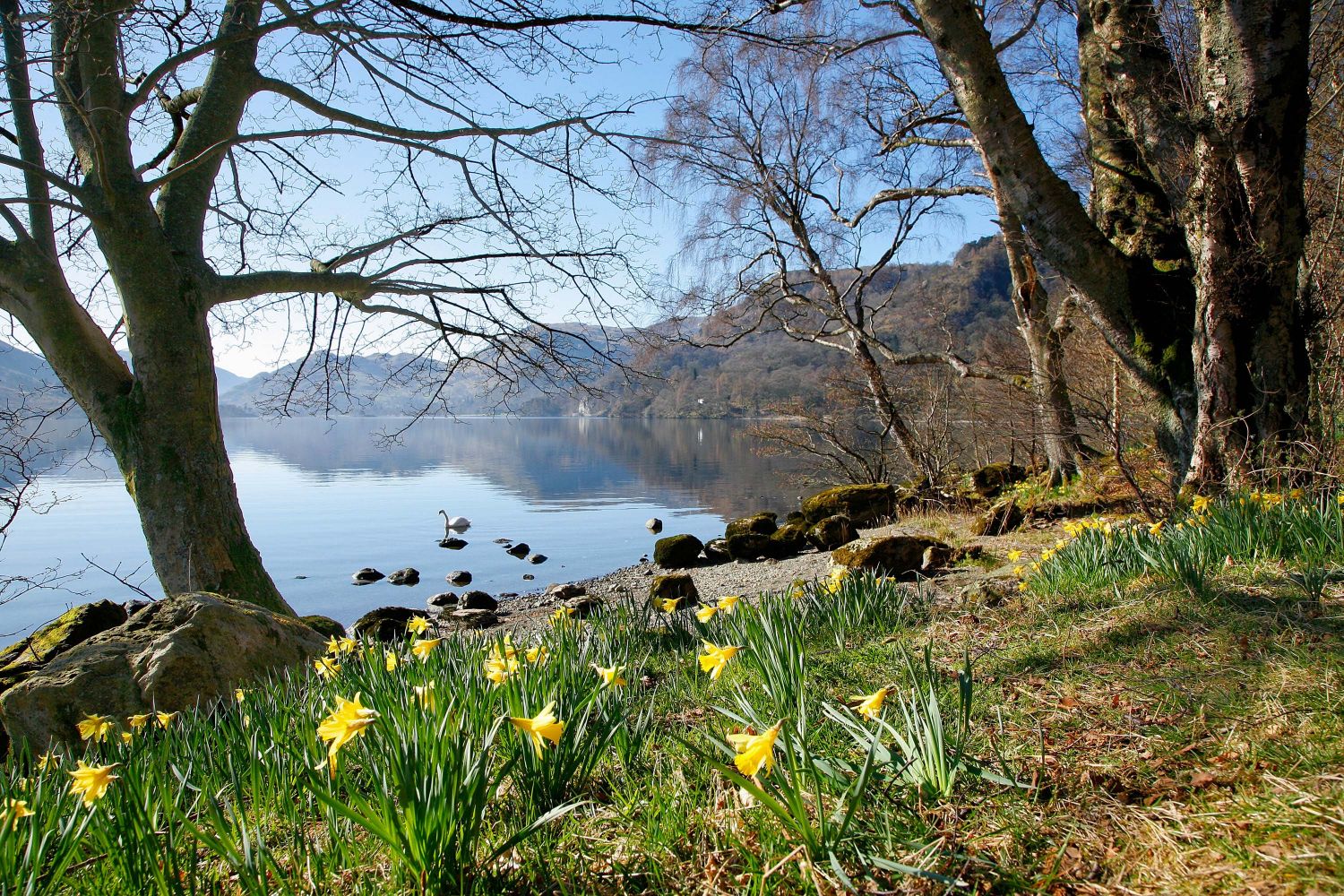
Daffodils At Wordsworth Point, Ullswater.-Picture by Martin Lawrence
'When William and Dorothy Wordsworth visited Glencoyne Bay on their way back to Grasmere after an overnight stay, it gave William the inspiration to write his most famous poem, - Daffodils. The daffodils are a wild variety and very dainty and neat. The sight of them on a carpet alongside the lake edge is quite spectacular.'
Here is one of my favourite poems I would like to share with you: Of all the famous poems of Wordsworth, none is more famous than "I Wandered Lonely as a Cloud".
In this poem, Wordsworth says that, wandering like a cloud floating above hills and valleys, he encountered a field of daffodils beside a lake. The dancing, fluttering flowers stretched endlessly along the shore, and though the waves of the lake danced beside the flowers, the daffodils outdid the water in glee. He says that a poet could not help but be happy in such a joyful company of flowers. He says that he stared and stared, but did not realize what wealth the scene would bring him. For now, whenever he feels “vacant” or “pensive,” the memory flashes upon “that inward eye / That is the bliss of solitude,” and his heart fills with pleasure, “and dances with the daffodils.”
I Wandered Lonely as a Cloud
I wandered lonely as a cloud
That floats on high o'er vales and hills,
When all at once I saw a crowd,
A host, of golden daffodils;
Beside the lake, beneath the trees,
Fluttering and dancing in the breeze.
Continuous as the stars that shine
And twinkle on the milky way,
They stretched in never-ending line
Along the margin of a bay:
Ten thousand saw I at a glance,
Tossing their heads in sprightly dance.
The waves beside them danced; but they
Out-did the sparkling waves in glee:
A poet could not but be gay,
In such a jocund company:
I gazed—and gazed—but little thought
What wealth the show to me had brought:
For oft, when on my couch I lie
In vacant or in pensive mood,
They flash upon that inward eye
Which is the bliss of solitude;
And then my heart with pleasure fills,
And dances with the daffodils.
Read More: On the 250th Birthday of William Wordsworth Let Nature be our Wisest Teacher
